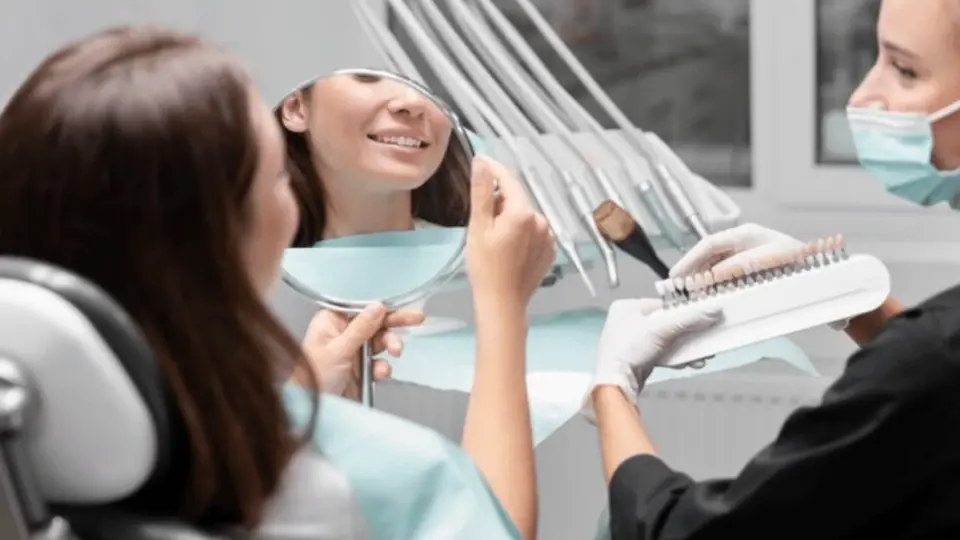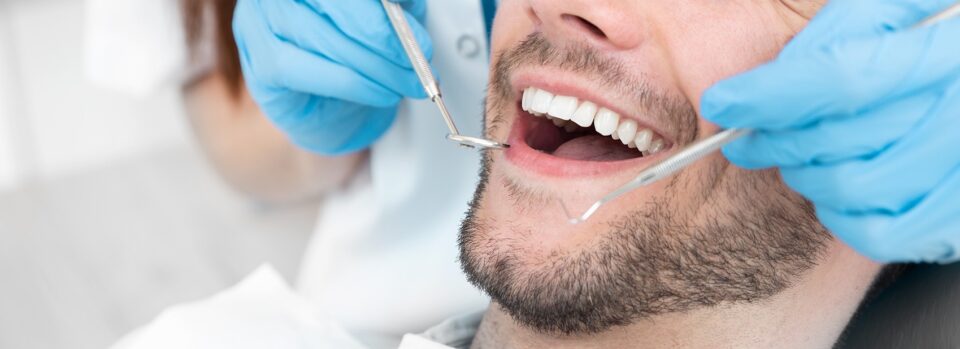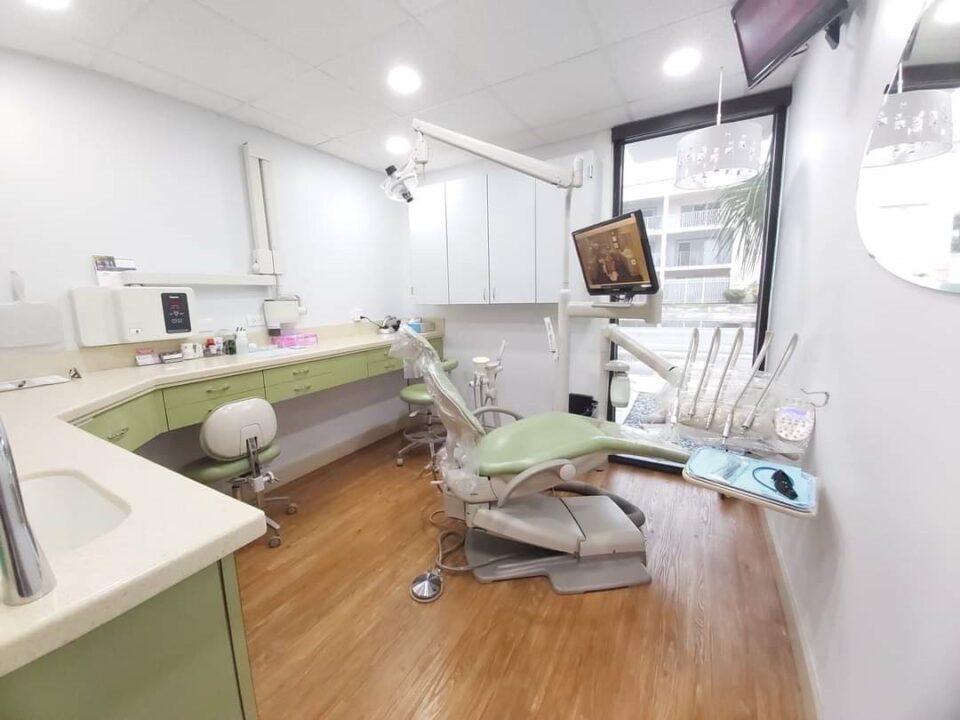Wisdom Teeth Removal Pompano Beach FL | JB Dentistry
Wisdom Teeth Removal Professionals: JB Dentistry Pompano Beach FL
Experiencing discomfort from crowding? Our Pompano dentist office has been providing wisdom teeth removal for over two decades.
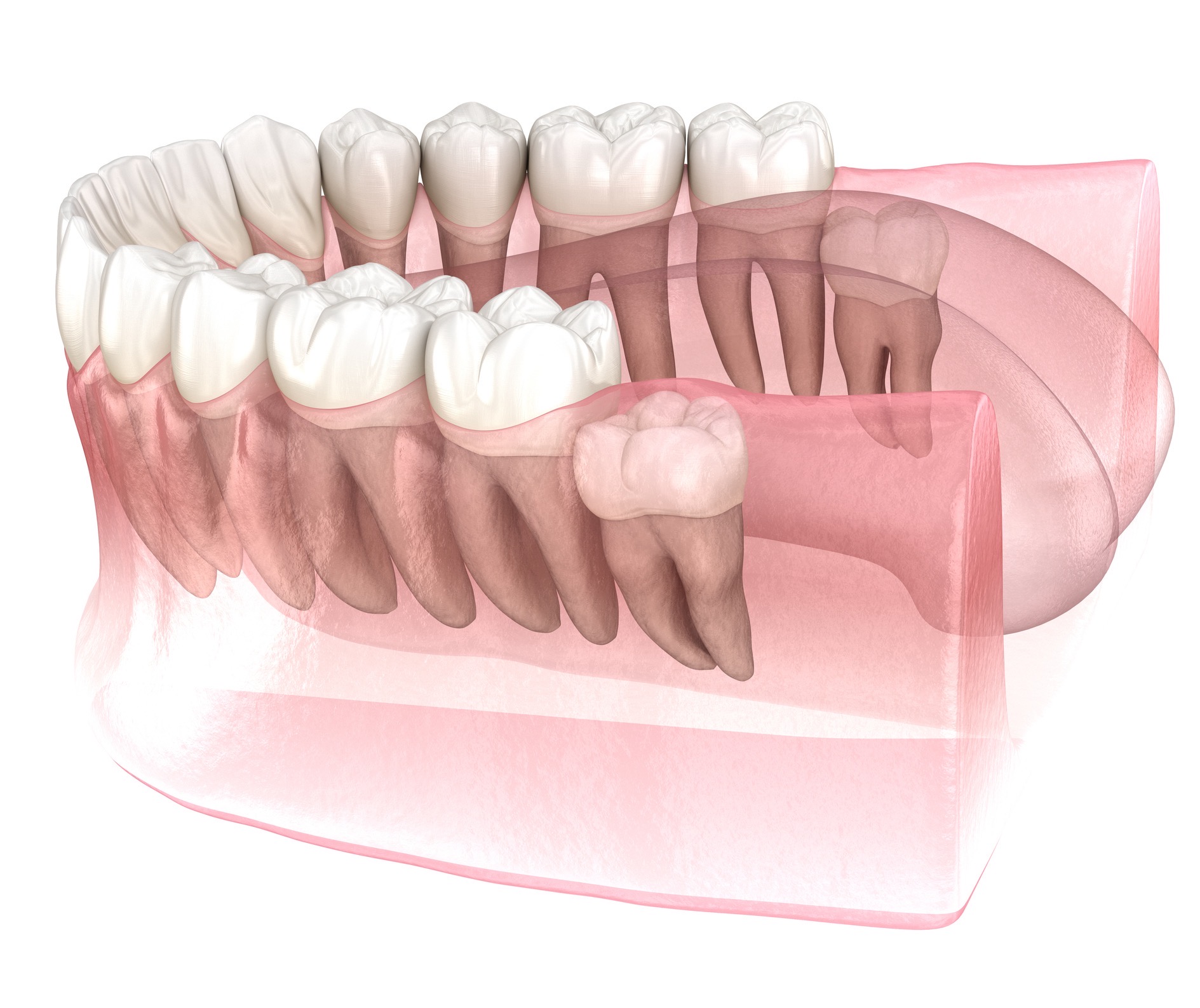
wisdom teeth removal in pompano beach fL
Jaline Boccuzzi, DMD, AAACD has years of experience in providing wisdom teeth removal services that are safe and effective. With our team’s attention to detail and dedication to patient care, you can rest easy knowing your needs are being taken care of.
During the initial consultation appointment, our friendly dentist will discuss your case and provide detailed information about the procedure. We will also answer any questions you may have and discuss the best course of action for your situation. With our wisdom teeth removal services, you can rest assured that you are in the best hands possible to ensure a smooth process from start to finish. If you’re looking for a reliable and experienced professional to handle your wisdom teeth removal needs, call today!
Contact Jaline Boccuzzi, DMD, AAACD today to schedule your initial consultation.
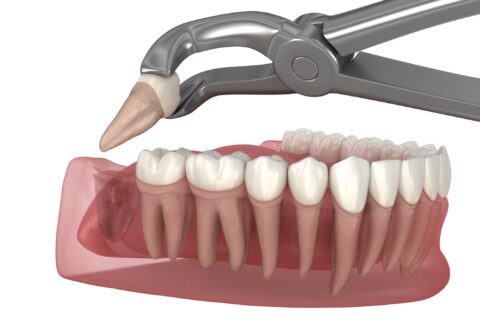
reasons for wisdom teeth removal
Wisdom teeth, also known as third molars, are the last teeth to erupt in the mouth, typically between the ages of 17 and 25. While some people may have enough space in their jaws to accommodate these teeth without any issues, others may experience problems that require wisdom teeth removal.
Here are some common reasons for wisdom teeth removal:
- Impacted Wisdom Teeth: Impacted wisdom teeth cannot fully emerge or develop properly due to a lack of space in the jaw. They may be partially or completely trapped beneath the gumline, causing pain, swelling, and discomfort. Impacted wisdom teeth can also lead to infections, cysts, or damage to neighboring teeth.
- Crowding and Misalignment: The eruption of wisdom teeth can disrupt the alignment of existing teeth, causing crowding or shifting. This can impact the appearance of the smile and the overall bite. Removing the wisdom teeth can help prevent further dental crowding and maintain the alignment achieved through orthodontic treatment.
- Tooth Decay and Gum Disease: Wisdom teeth are located at the back of the mouth, making them difficult to clean properly. Their positioning and limited accessibility can increase the risk of tooth decay and gum disease. Removing wisdom teeth can reduce the likelihood of developing cavities, gum inflammation, and periodontal problems.
- Pericoronitis: Pericoronitis is a condition that occurs when the gum tissue surrounding a partially erupted wisdom tooth becomes inflamed or infected. It can cause pain, swelling, bad breath, and difficulty opening the mouth. Removing the wisdom tooth can alleviate the symptoms and prevent recurrent episodes of pericoronitis.
- Cysts or Tumors: In some cases, wisdom teeth may develop cysts or tumors in the surrounding jawbone. These growths can cause damage to the jawbone, nearby teeth, and nerves. Removing wisdom teeth is necessary to eliminate the risk of further complications and ensure oral health.
- Difficulty in Oral Hygiene: Wisdom teeth can be challenging to clean effectively due to their location at the back of the mouth. The inability to clean these teeth properly increases the risk of oral health problems, such as tooth decay, gum disease, and bad breath. Removing wisdom teeth can simplify oral hygiene routines and improve overall oral health.
- Prevention: Even if wisdom teeth are not causing problems, they may be at risk of developing. Dentists often recommend the proactive removal of healthy wisdom teeth to prevent potential complications, especially if there is a high likelihood of problems based on the individual’s oral anatomy and development.
It’s important to consult a dentist or oral surgeon for a thorough evaluation and personalized recommendation regarding removing wisdom teeth. They will consider factors such as the position, condition, and potential impact of the wisdom teeth on your oral health to determine the appropriate course of action. Early wisdom teeth removal is often recommended to prevent complications and promote oral well-being.
what to expect during wisdom teeth removal
After wisdom teeth removal, you may experience some soreness and swelling. As a general precaution, you should take it easy for at least the first day after surgery and avoid strenuous activities like exercise, lifting heavy objects, or bending over too much. You should also keep your head elevated while sleeping to reduce swelling. It’s important to follow any post-operative instructions given by your oral surgeon.
To help manage the pain, you should take any medications your doctor prescribes as directed. Your doctor may also advise eating soft foods or drinking cold liquids for a few days after the surgery to reduce swallowing discomfort. Applying an ice pack to the jaw can also help reduce swelling and relieve soreness.
It’s normal to experience some bleeding after a wisdom teeth extraction. To control the bleeding, your doctor might suggest placing gauze over the wound and biting down firmly for at least 30 minutes. You should also rinse your mouth with warm salt water after each meal to help reduce swelling and promote healing. Additionally, try to avoid drinking through straws or smoking during the healing process as this can cause the wound to become irritated.
Remembering that the healing process takes time is important, so it’s best to be patient with yourself. Be sure to attend any follow-up appointments or check-ups as your oral surgeon recommends; this will help ensure that any potential complications are detected and treated promptly. Additionally, pay attention to any signs or symptoms of infection, such as fever, excessive swelling, pain, redness, or drainage from the wound. If you experience any of these symptoms after surgery, contact your doctor for further instructions.
recovery process
After the wisdom tooth extraction procedure is done, your dentist or oral surgeon will provide you with instructions for a successful recovery. It’s important to follow these instructions carefully to minimize pain and discomfort during the recovery process.
First, it’s important that you keep your mouth clean for the first day after surgery. Gently rinse with salt water several times a day and avoid brushing your teeth for 24 hours. However, you may use a soft toothbrush to clean the areas not affected by surgery.
You should also make sure to limit physical activity for the first few days following surgery as this can cause increased bleeding or swelling of the extraction site. Additionally, you should avoid touching or disturbing the extraction site with your tongue or fingers.
Your dentist or oral surgeon may also recommend an ice pack to reduce swelling. You should follow their instructions carefully and make sure not to apply the ice pack directly on your skin as it can cause tissue damage.
risks of keeping wisdom teeth
Keeping wisdom teeth, also known as third molars, can pose certain risks and complications for oral health. Here are some potential risks associated with keeping wisdom teeth:
- Impacted Wisdom Teeth: Wisdom teeth often don’t have enough space to erupt and develop properly and fully. As a result, they may become impacted, meaning they are trapped beneath the gumline or against adjacent teeth. Impacted wisdom teeth can cause pain, swelling, and discomfort. They can also lead to infections, cysts, or damage to neighboring teeth.
- Crowding and Misalignment: Wisdom teeth can exert pressure on the surrounding teeth as they attempt to emerge. This pressure can cause crowding and misalignment of the existing teeth, potentially undoing the effects of orthodontic treatment. Crowded teeth can be difficult to clean properly, increasing the risk of tooth decay, gum disease, and other oral health issues.
- Tooth Decay and Gum Disease: Wisdom teeth are located at the back of the mouth, making them harder to clean effectively. Their positioning and limited accessibility can make proper oral hygiene practices challenging, increasing the risk of tooth decay, gum inflammation, and periodontal problems.
- Pericoronitis: Pericoronitis is a condition that occurs when the gum tissue surrounding a partially erupted wisdom tooth becomes inflamed or infected. It can cause pain, swelling, bad breath, and difficulty opening the mouth. Pericoronitis can be recurrent and may require repeated treatments if the underlying cause, such as the impacted wisdom tooth, is not addressed.
- Cysts or Tumors: Wisdom teeth can sometimes develop cysts or tumors in the surrounding jawbone. These growths can cause damage to the jawbone, neighboring teeth, and nerves. If left untreated, cysts or tumors associated with wisdom teeth can lead to more serious complications and require more invasive treatments.
- Difficulty in Oral Hygiene: Wisdom teeth can be challenging to clean properly due to their location at the back of the mouth. Inadequate cleaning increases the risk of plaque accumulation, tooth decay, gum disease, and bad breath. It can be particularly difficult to reach and clean the surfaces of partially erupted or impacted wisdom teeth.
- Future Complications: Even if wisdom teeth are not currently causing problems, they may be at risk of developing issues. Monitoring and predicting the potential complications associated with wisdom teeth can be difficult, so proactive removal is often recommended to prevent future oral health problems.
It’s important to consult with a dentist or oral surgeon for a thorough evaluation and personalized recommendation regarding removing or retaining wisdom teeth. They will assess the specific circumstances, including the position, condition, and potential impact of the wisdom teeth on your oral health, to help you make an informed decision.
do's and don'ts of wisdom teeth removal
Following wisdom teeth removal, taking proper care of the surgical site is essential to promote healing and minimize the risk of complications. Here are some general do’s and don’ts to consider after wisdom teeth removal:
do
- Follow Post-Operative Instructions: Listen carefully to the instructions provided by your oral surgeon or dentist. They will provide specific guidelines tailored to your situation, including pain management, wound care, diet, and medication information.
- Control Bleeding: Bite down on the gauze pad placed over the surgical area to help control bleeding. Change the gauze as directed or when it becomes saturated. If bleeding persists or becomes excessive, contact your oral surgeon or dentist.
- Apply Ice Packs: Use ice packs or cold compresses on the outside of your face near the surgical site for the first 24 hours to help reduce swelling and alleviate discomfort.
- Take Prescribed Medications: Take any prescribed medications as directed, including pain relievers and antibiotics if prescribed. Follow the recommended dosage and schedule to manage pain and prevent infection.
- Maintain Oral Hygiene: After the first day, gently rinse your mouth with warm saltwater (if recommended) or an antimicrobial mouthwash provided by your oral surgeon or dentist. Be cautious not to rinse or spit forcefully, as it can dislodge the blood clot and hinder healing. Brush your teeth carefully, avoiding the surgical area.
- Eat Soft, Nutritious Foods: Stick to a soft and nutritious diet in the initial days following the surgery. Choose yogurt, smoothies, mashed potatoes, soup, and soft pasta. Gradually reintroduce solid foods as advised by your oral surgeon or dentist.
- Stay Hydrated: Drink plenty of fluids to stay hydrated, but avoid using a straw for the first few days, as the suction can dislodge the blood clot and delay healing.
don't
- Don’t Touch the Surgical Area: Avoid touching the surgical area with your fingers or tongue, as it can introduce bacteria and hinder healing.
- Don’t Rinse or Spit Vigorously: Refrain from rinsing your mouth forcefully or spitting excessively for the first 24 hours, as it may dislodge the blood clot and lead to complications.
- Don’t Smoke or Use Tobacco Products: Smoking and tobacco use can delay healing and increase the risk of complications, such as dry sockets. Avoid smoking or using tobacco products for at least a few days after surgery.
- Don’t Engage in Strenuous Activities: Avoid strenuous activities, heavy lifting, and intense exercise for the first few days following the surgery to prevent excessive bleeding and swelling.
- Don’t Consume Hard, Crunchy, or Sticky Foods: Steer clear of hard, crunchy, or sticky foods that irritate the surgical site or dislodge blood clots. This includes chips, nuts, popcorn, sticky candies, and hard fruits or vegetables.
- Don’t Neglect Oral Hygiene: Although you need to be cautious around the surgical area, it’s important to maintain good oral hygiene overall. Keep your mouth clean by gently brushing your teeth and tongue while avoiding the surgical site.
- Don’t Skip Follow-Up Appointments: Attend all scheduled follow-up appointments with your oral surgeon or dentist. They will monitor your healing progress, remove any necessary stitches, and provide further guidance or recommendations.
in need of wisdom teeth removal?
Ready to relieve the discomfort and potential risks associated with your wisdom teeth? Look no further than Jaline Boccuzzi, DMD, AAACD for expert wisdom teeth removal services. Our experienced team is dedicated to ensuring a safe and comfortable procedure, providing personalized care tailored to your specific needs. Say goodbye to pain and hello to a healthier smile.
Take the next step towards a worry-free oral health journey. Schedule your wisdom teeth removal consultation with Jaline Boccuzzi, DMD, AAACD today. Don’t let wisdom teeth hold you back—trust our expertise to deliver exceptional results.
Contact us now to book your appointment and experience the difference firsthand. Your smile deserves the best!
